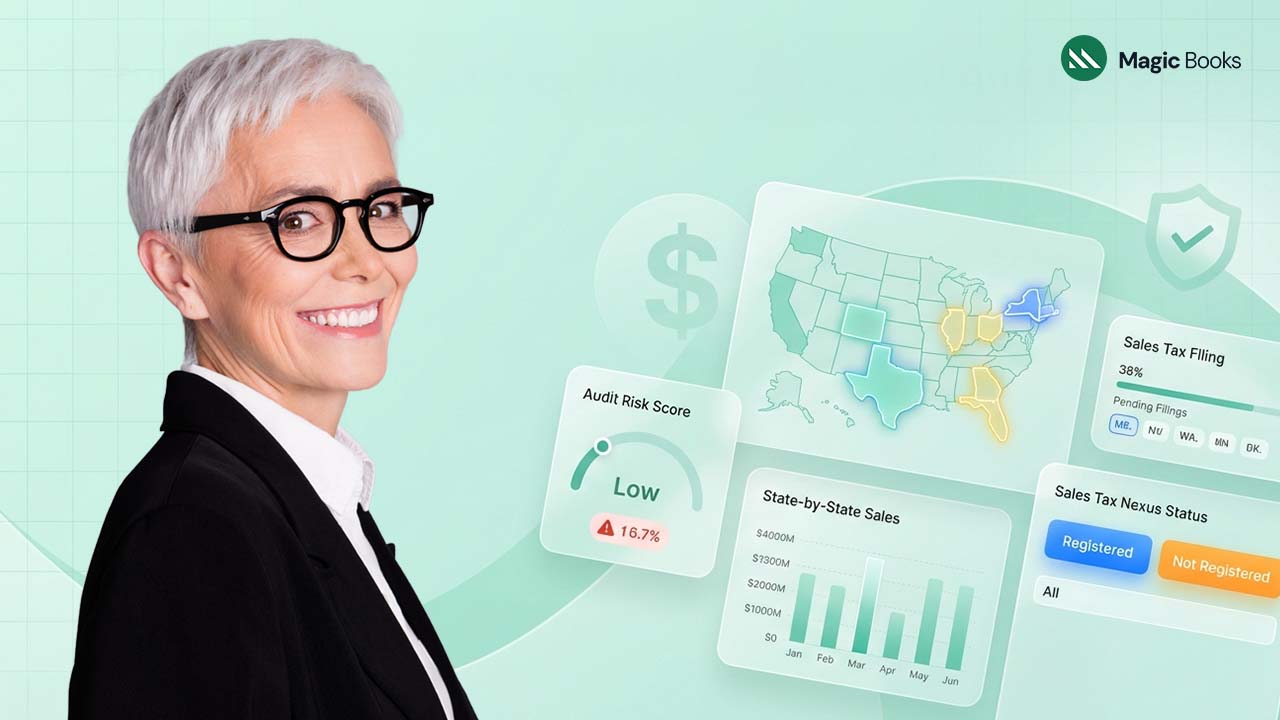Tax prep is part of being a well-oiled machine. After all, if you pay too much in tax you have less cash to invest in your business. A common mistake young entrepreneurs make is to be reactive with tax prep. It’s usually better to plan at the start of the year rather than the end. The end of the year is the most critical time for tax prep. It’s your last chance to make decisions that will impact your business tax return.
When to start thinking about year-end tax planning:
The sooner you start thinking about year-end tax planning the more time you have to review the options and make any necessary changes. This is especially important if you are making big changes in your business such as incorporation or changes to your business structure. It’s not bad to start thinking about tax planning early for next year if you expect a big income that will increase your tax liability.
It’s good to start reviewing year-end tax planning a few months before the end of the tax year. You will need a few months to review options and make changes where necessary. If you are unclear on any part of your tax planning it’s always good to seek advice from an accountant or tax adviser. They can explain the options available to you and create a tax planning strategy for you.
As we approach 2024 end we should review your tax and financial plans and discuss how you can minimize your tax and save for the future. With the new administration and many of the Tax Cuts and Jobs Act provisions set to expire something will change. We will keep an eye on any tax legislation and will let you know.
We can help clarify tax and financial planning options and implement strategies to reduce your tax. Contact us well in advance to discuss your situation so we can create a plan for you.
Meanwhile, here are some issues facing small business clients as we approach year-end:
Expiration of TCJA provisions on the horizon
First, it is important to consider the upcoming changes occasioned by the sunset of the provisions enacted in 2017 in the TCJA. Absent Congressional action, several key benefits will expire on December 31, 2025, and thus impact your tax situation starting in 2026.
One of the biggest changes will be the reduction of the 20% deduction on qualified small business income. That, along with the changes to the individual income tax rate, could considerably affect your tax liability. Thus, it may be important for your business to review income and deductions for both 2024 and 2025 to realize the advantages of the current tax law.
New Reporting Requirements
Starting in 2024, the Corporate Transparency Act requires many entities, including some LLCs, to report their beneficial ownership to FinCEN. This is not a tax return or otherwise a tax-related filing; rather, it is a separate reporting requirement, with significant legal penalties for non-compliance. Entities created before Jan. 1, 2024, must file by Jan. 1, 2025. This reporting requirement has been stayed pending appeal by an injunction filed by a Federal Texas District Court.
A List of Actions That Help Your Business Save Tax Dollars
We have outlined below several actions, within current tax law, that can help lessen your tax burden if taken before year-end.
Analyze your financial statements:
Examine your company’s income and cost situation as the tax year comes to an end. That may entail catching up on your bookkeeping to have a better understanding of your tax status. We can assist you in analyzing your financial statements to identify potential tax savings and planning options.
Deferring income and accelerating expenses:
Many times, you can save taxes by using techniques like deferring income or accelerating it, prepaying, or deferring spending. A good example is buying property and equipment before the end of the year. Many acquisitions can be immediately written off in the year placed in service. In addition, tax-favored laws qualify improved property that meets certain requirements to be eligible for 15-year depreciation, which yields 60% first-year bonus depreciation. If Congress fails to enact legislation, the percentage of first-year bonus depreciation will revert to 40% in 2025.
Business meals:
As you head into the holiday season and have more social gatherings with your customers and employees, remember the rules for business meal deductions. Sometimes a business meal can be 100% deductible. Make sure you properly categorize your expenses.
A net operating loss:
If your deductions for the year are more than your income for the year, you may have an NOL. You can generally use an NOL by deducting it from your income in another year(s), subject, however, to a general limitation of 80% of taxable business income in any one year. We can counsel you on how any potential overall tax benefit may be so limited.
Energy tax credits:
Various tax breaks come into play to encourage a business to have a smaller carbon footprint and encourage firms to be more ecologically friendly. Tax credits may be claimed on items such as the following, subject to the satisfaction of certain criteria:
Electricity produced from certain renewable sources namely geothermal, solar, and wind power plants
Energy-efficient home improvements — Only eligible contractors and manufactured home manufacturers are eligible
Alternate fuels:
Businesses may also qualify for a tax deduction for energy savings generated from qualified energy-efficient commercial building property.
The rules are very complicated, but they are well worth doing your homework on carefully now.
Beneficial ownership interest (BOI) reporting:
The Corporate Transparency Act, to be effective on January 1, 2024, imposes reporting requirements to FinCEN with respect to beneficial ownership of certain entities. Notably, this may well include single-member LLCs, which otherwise are generally disregarded entities for income tax purposes.
Please note that this is not a tax filing but rather an online report filed directly with FinCEN if applicable. Serious penalties exist for businesses that knowingly do not meet the requirements. For entities in existence before January 1, 2024, it needs to be filed by January 1, 2025. There are different deadlines for entities formed during 2024 and regarding modification to filed information.
Filing is done directly through the FinCEN website at www.fincen.gov/boi. Note that this is filed only once unless there are changes to the reported information.
Digital assets and virtual currencies:
It means any form of digital value recorded on a cryptographically secure distributed ledger or any other similar technology. It could include NFT and virtual currencies, which range from cryptocurrencies to stablecoins.
The sale or exchange of virtual currencies, the use of such currencies to pay for goods or services, or holding such currencies as an investment all have tax implications—and the IRS continues to tighten its inspection and reporting requirements in this sector. We can help you understand the tax and investment implications.
If you acquire and dispose of cryptocurrency, keep in mind that there is a safe harbor that allows you to allocate unused basis pre-year-end, so long as you utilize the universal method for those asset types to determine your cost of such assets.
Other 2024 Tax Planning Considerations
Charitable Contributions: Charitable giving by a corporation may be deducted up to 10% of taxable income. Flow-through entities are limited based on the taxable income limit of the owners.
Timing of income and deductions: A comparison of this year’s and future tax brackets may be the determining factor in deciding whether to take income this year or in the future and accelerating expenses by cash-based taxpayers. Prepaying expenses and writing off obsolete inventory are classic year-end moves.
Owner Transactions: Loans, salaries, and distributions between the owners and business have different tax ramifications. If properly set up, this will not, or at maximum, minimally, add tax liabilities.
Retirement Planning: The SECURE 2.0 Act includes new requirements and incentives to establish a retirement plan. You should review your plan provisions to determine what new opportunities you might leverage and review plan costs.
Depreciation and expensing: Understanding depreciation choices which enable matching of cash outflow and tax savings, have an impact on the after-tax cost of asset ownership.
State and Local Taxes: Multi-state businesses need to look at sourcing of revenue, the burden of collection responsibilities, and various new taxes that multiple states have recently imposed on pass-through entities including S corporations and partnerships.
Disaster Preparedness: When was the last time you reviewed your disaster recovery plan? Maintaining your financial information private may avoid headaches later on.
1099 Deadline: If your company utilizes independent contractors, make sure you have collected W-9 forms for them and are ready and able to issue 1099s on or before the Jan. 31 deadline. Organized recordkeeping prevents penalties and compliance headaches in the new year.
Succession Planning: Thinking of getting out of your business? Tax considerations should be an important part of structuring a transaction.
Other Tax Credits: Tax credits reduce tax liability directly, and this normally has more impact on returns than deductions. Determine if your business qualifies for these additional credits:
Research & Development (R&D) Credit: For businesses investing in innovation or process improvements.
Energy-Efficient Tax Credits: These are for upgrading energy-efficient equipment or facilities.
Tax planning should be an utmost priority for your business as taxes play a key role in owning a business. Planning for taxes does not have to be a super complicated process where you are scratching your head and rethinking your whole life. If you spread the planning throughout the year, you won’t be so stressed trying to cram it in at the end of the year. If you do not like spending your free time worrying about taxes, consider hiring a qualified professional to take this off your plate. This will allow you to focus on what you do best, growing your business and generating profits. Year-end tax planning for small business owners is non-negotiable.



